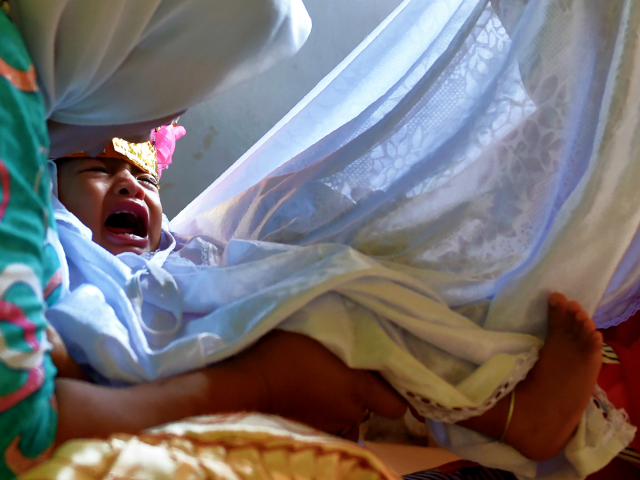Authorities from the UK and U.S. are undertaking joint operations at airports in attempts to tackle the growing problem of child female genital mutilation (FGM) amongst their Muslim and migrant communities.
Operating at New York City’s JFK Airport and airports across Britain, police and border patrol officers look for signs of abuse, including girls having trouble walking or standing — signs associated with the procedure where the most severe forms of FGM involve the total removal of the clitoris, labia, and the intentional narrowing of the vaginal orifice.
Authorities on both sides of the Atlantic have begun talking to parents on targetted flights from countries where the abuse is practised to inform them that it is illegal.
Both countries have signed intelligence-sharing agreements, including with the FBI and Department of Homeland Security (DHS), which focuses on information related to when and where victims may be taken for cutting.
Amanda Reid, from the UK Border Force’s safeguarding and modern slavery unit, told Sky News: “We’re here to send that message that FGM is a criminal act and that we want to protect girls.”
Multicultural Britain Prepares for Summer Vacation by Warning Children About FGM, Forced Marriages Abroad https://t.co/KxZSmDJmgA
— Breitbart London (@BreitbartLondon) July 25, 2018
The summer vacation has been referred to as “Cutting Season” because pre-pubescent girls are at higher risk of being subjected to FGM while on vacation in their families’ countries of origin, mostly predominantly Muslim countries in Asia, the Middle East, and Africa and notably Somalia and Ghana.
The U.S.’s Immigration and Customs Enforcement (ICE) along with the Homeland Security Investigations (HSI), and Operation Limelight USA (based on Britain’s Operation Limelight) launched their own programme in June to aid children at risk of FGM at Newark Airport, following on from a pilot programme initiated at JFK International Airport last year.
The campaign compliments work undertaken before the summer holidays by Britain’s project Limelight and others where police targetted families at ports and warned children on social media that they may be subjected to FGM and “honour-based” violence such as forced marriages.
British authorities have come under criticism for not doing enough to protect ethnic minority children and youths from such cultural practices, with one FGM survivor Nico Ali writing that when she was subjected to cutting as a child, “to question an act of abuse some deemed to be part of established culture was to be politically incorrect”.
Any feminists engaged with this story at all? https://t.co/XfWmYLzVy0
— Breitbart News (@BreitbartNews) July 19, 2017
Last year, the U.S. Department of Justice pledged to protect the half a million American women and girls at risk of the brutal abuse after a joint HSI and FBI investigation led to the arrest of Dr. Jumana Nagarwala, from Detroit, Michigan, in April 2017.
Dr Nagarwala was charged with performing FGM on up to 100 girls between the ages of six and eight, and is the first case of an individual facing prosecution in the United States for FGM. The case is set to go to trial in January 2019.
The newly-culturally diversified United States has seen in the two decades between 1990 and 2012 the total number of women and girls at risk for FGM, or “cutting”, increase by 224 percent, from 168,000 to 545,000.
The brutal practice has been illegal in the United Kingdom since 1985. However, despite 5,391 new cases of FGM in 2016-2017 and 1,030 recorded between January and March 2018 in England alone, only three cases have come to trial and not one child abuser has actually been convicted for the abuse.
Founder of the Dahlia Project Leyla Hussein, who suffered the abuse when she was seven, said that more has to be done to stop the cultural mutilation before it happens.
“If a stranger did that to a child he could end up on the sex offenders’ list but when that happens to us it’s considered ‘cultural practice’,” she told Sky News.
“That’s the conversation we should be having.”

COMMENTS
Please let us know if you're having issues with commenting.